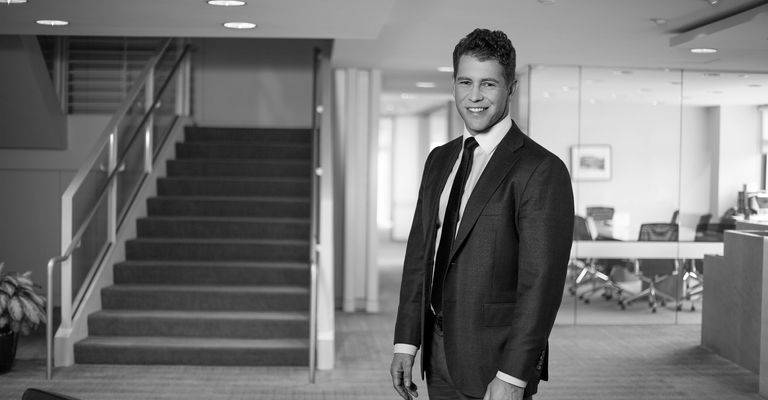Insights
The Hidden Cost of PPP Loans: U.S. Businesses Receiving Loans May Risk Civil Suits
May 07, 2020Since President Trump signed the “Coronavirus Aid, Relief, and Economic Security Act” (“CARES Act”) on March 27, 2020, small and large businesses across the United States have scrambled to obtain loans through the Paycheck Protection Program (“PPP”) created by Division A of the Act. With a 1% interest rate and the promise of partial or full loan forgiveness, the loans offer the allure of nearly free financing for businesses impacted by the economic disruptions caused by the COVID-19 pandemic. But well-financed or highly liquid businesses that obtain the loans may find themselves the targets of regulatory inquiry or private civil suits, and the defense of these actions may be more difficult if they were not cautious in making the requisite certification that “current economic uncertainty makes [their] loan request necessary to support the ongoing operations of the applicant.”1 The precise definition of when funding is “necessary” is far from clear. But it is becoming clear that businesses making that certification should be prepared to face later inquiry from potential civil claimants in addition to the anticipated regulatory inquiry.
The PPP deliberately loosens certain requirements for loan eligibility from the Small Business Administration (“SBA”). For example, because of significant disruptions to the food service and hospitality industry, it permits such businesses with “more than one physical location and . . . less than 500 [employees] per location. . . ” to obtain PPP loans.2 This loosening expanded the program to include large and even publicly traded corporations. Not everyone has cheered this expansion of eligibility. After the first round of loan funding ran out in late March, outcry in the media forced some companies to return loans even though many of these firms appear to have been eligible under PPP criteria. In a letter published by Shake Shack on LinkedIn, the company’s CEO explained that Shake Shack had been qualified for a PPP loan but complained the program was “confusing,” lacked a “user manual,” and was inadequately funded to make loans to all deserving businesses.3 Other large business that received loans—both public and private—have either avoided negative publicity or decided to keep their loans.
The SBA Provides Limited Additional Guidance About When a PPP Loan is “Necessary”
After Congress authorized another $350 billion in loans last week, the SBA issued new guidance designed to address the backlash against large companies receiving loans under the program. The new guidance advises that when submitting a loan application with its requisite certification of necessity:
Borrowers must make this certification in good faith, taking into account their current business activity and their ability to access other sources of liquidity sufficient to support their ongoing operations in a manner that is not significantly detrimental to the business. For example, it is unlikely that a public company with substantial market value and access to capital markets will be able to make the required certification in good faith, and such a company should be prepared to demonstrate to SBA, upon request, the basis for its certification.4
The new guidance also provides a potential safe harbor for well-financed or highly liquid companies that have already received loan funds. It provides that companies that repay a loan in full by May 14, 2020 “will be deemed by SBA to have made the required certification in good faith.”5 The SBA’s guidance implies that more scrutiny should be applied to any well-financed or public company that requests or has received a loan and decides not to pay it back before May 14, 2020. An analysis of whether any particular PPP recipient can appropriately defend its good faith determination of necessity is beyond the scope of this article, although the degree to which all companies are facing extreme economic uncertainty may support a claim of necessity.
This new focus on the good faith certification of necessity opens the door to the likelihood of civil challenge against PPP loan recipients by those companies who applied for and failed to receive PPP loan funding. Identifying target defendants will not be difficult. Publicly traded companies are required to disclose their receipt of loans in public filings with the Securities and Exchange Commission; and the program application form provides that for all businesses information provided to the SBA is subject to Freedom of Information Act (FOIA) requests.6 Based on claims filed so far, even returning the funds to the SBA may not eliminate this civil litigation risk.
Potential Theories of Liability Asserted Against Recipients of PPP Loans
Unsuccessful applicants (and their counsel) will have several potential theories of liability to seek remedy against businesses, and likely their funding banks, who obtained PPP loan funds based upon an allegedly improper certification of necessity. These include claims based upon federal statutes, state statutes, and common law—especially in states like California that tend to present more favorable venues for claimants.
The False Claims Act
The Federal False Claims Act (31 U.S.C. §§ 3729 et seq.) authorizes any private individual to recover up to 30% of damages awarded in “qui tam” actions against individuals or entities that defraud the federal government. There is abundant precedent that a business making a false representation in order to obtain an SBA loan may give rise to liability under the False Claims Act7 The plaintiff must be able to prove, however, that the targeted defendant “knowingly present[ed] . . . a false or fraudulent claim,” which means that businesses that act in good faith will have a ready defense to the merits of any False Claims Act claim.8
Unfair Competition Claims
Many states have statutory regimes that broadly prohibit unfair or anti-competitive acts between businesses. For example, California’s Unfair Competition Law (Cal. Bus. & Prof. Code § 17200 et seq.) authorizes private suits against any person or business that engages in unlawful, unfair, or fraudulent practices.9 Anyone who suffers a loss of “money or property caused by unfair competition” has standing to pursue these claims.10 It would not be difficult to characterize an allegedly false certification of a loan’s necessity as an unlawful or unfair practice. It seems likely that the most frequent stumbling block for these claims—that the plaintiff has not lost anything as a result of the unfair competition—could be overcome by any eligible business that failed to receive funds because others, who were not valid recipients, crowded in line in front of the businesses for whom the stimulus funds were actually intended. UCL claimants may, nonetheless, have difficulty establishing their entitlement to a monetary remedy because the UCL only authorizes a court to order the return of money to a claimant with an “ownership interest” in that money.11It remains to be seen whether courts will accept any theory that a PPP loan applicant had an ownership interest in PPP money loaned to another entity, and the notion seems like a stretch.
Interference with Prospective Business Advantage
The common law tort of interference with prospective business advantage is another likely candidate for claims by businesses that failed to obtain PPP loans when larger companies obtained them. These claims require an injured party to show “(1) the existence, between the plaintiff and some third party, of an economic relationship that contains the probability of future economic benefit to the plaintiff; (2) the defendant’s knowledge of the relationship; (3) intentionally wrongful acts designed to disrupt the relationship; (4) actual disruption of the relationship; and (5) economic harm proximately caused by the defendant’s action.”12 Assuming that a plaintiff can prove that a certification of necessity to the SBA was false, the element likely to spawn the most disputes is whether the claimant can establish the “defendant’s knowledge” of the plaintiff’s expected benefit. Whereas one unpublished federal decision has held that a plaintiff has to “plausibly” plead the defendant’s specific “knowledge of an economic relationship between [the plaintiff] and a third party,” the California Supreme Court has stated that “specific intent [to disrupt a relationship] is not a required element of the tort of interference with prospective economic advantage. . . .”13 It would be difficult for a targeted defendant to plausibly claim that it was not aware that the supply of loan funds was limited. On the other hand, a small business would be hard pressed to show that any other targeted defendant had specific knowledge of the loan application to the SBA.
Unjust Enrichment
The tort of unjust enrichment which requires only that a plaintiff show that a defendant received “a benefit and unjust[ly retained it] at the expense of another” is another possible theory of liability.14While the defense bar in California commonly argues that unjust enrichment is not a cognizable claim, California law does not clearly support this position.15The likelihood of such a claim succeeding or failing is likely to depend more on the degree to which the defendant’s conduct appears to be wrongful and the ability of a plaintiff to show that it would have received a loan were it not for the conduct of the defendant.
Conclusion
Businesses that have already obtained PPP funds and those that are applying now should take very seriously the good faith certification they are required to make in their loan application. They should prepare (and preserve for several years) detailed records showing how the COVID-19 pandemic impacted their business and supporting the claim that a loan is necessary. Businesses should consider any applicable insurance coverages they have that could mitigate losses or attorney’s fees incurred as a result a regulatory inquiry or a civil suit challenging their receipt of the funds. Business should also consider and weigh the benefits of obtaining a PPP loan against the potential risk of civil claims identified in this article.
While businesses often cannot control whether they are sued by disgruntled third parties, taking these steps will ensure that businesses can substantially mitigate their risk of being sued or being held liable for any claim asserted against them arising out of their receipt of a PPP loan.
1. https://home.treasury.gov/system/files/136/PPP-Borrower-Application-Form-Fillable.pdf
2. https://www.sba.gov/funding-programs/loans/coronavirus-relief-options/paycheck-protection-program#section-header-7 (Under heading “Who Can Apply”).
3. https://www.linkedin.com/content-guest/article/shake-shack-returning-its-ppp-loan-heres-why-randy-garutti/
4. Frequently Asked Question 31. https://home.treasury.gov/system/files/136/Paycheck-Protection-Program-Frequently-Asked-Questions.pdf
5. Id.
6. https://home.treasury.gov/system/files/136/PPP-Borrower-Application-Form-Fillable.pdf
7. Ab-Tech Const., Inc. v. U.S. 31 Fed.Cl. 429, 435 (Fed. Cl. 1994) aff’d sub nom. Ab-Tech Const. v. U.S., 57 F.3d 1084 (Fed. Cir. 1995).
8. 31 U.S.C. § 3729(a)(1)
9. People ex rel. Bill Lockyer v. Fremont Life Ins. Co., 104 Cal. App. 4th 508, 514-17 (2002).
10. Peterson v. Cellco P’ship 164 Cal. App. 4th 1583, 1590 (2008); see also, Bus. & Prof. Code § 17204.
11. Korea Supply Co. v. Lockheed Martin Corp., 29 Cal.4th 1134, 1148 (2003).
12. Roy Allan Slurry Seal, Inc. v. American Asphalt South, Inc., 2 Cal.5th 505, 512 (2017).
13. Compare Capitol West Appraisals LLC v. Countrywide Financial Corp., 467 Fed.Appx. 738, 740 (9th Cir. 2012) to Korea Supply, 29 Cal.4th at 1154.
14. Lyles v. Sangadeo-Patel, 255 Cal. App. 4th 759, 769 (2014) (internal citations omitted).
15. See First Nationwide Savings v. Perry, 11 Cal. App. 4th 1657, 1662 (1992) (“we shall conclude that FNS’s complaint can be amended to state a cause of action for unjust enrichment.”); Hirsch v. Bank of America, 107 Cal. App. 4th 708, 722 (2003) (finding the plaintiffs “stated a valid cause of action for unjust enrichment”).
Related Practice Areas
-
Business & Commercial Disputes
-
Corporate
-
Retail & Consumer Products




